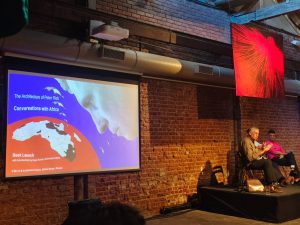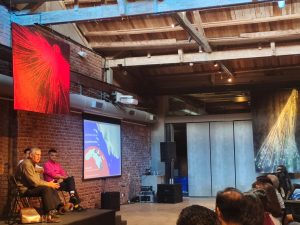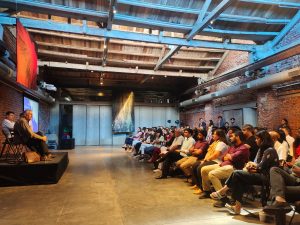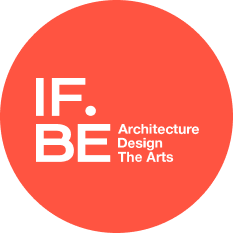Peter Rich Book launch
About the event
A stimulating lecture-presentation by veteran South African architect Peter Rich on his recent book, The Architecture of Peter Rich – Conversations with Africa.
Internationally renowned, Peter Rich’s career represents a lifelong attempt to find a contemporary, yet uniquely African mode of design. With a foreword by Pritzker Architecture prize winner BV Doshi, the book follows the chronology of his work which emerges from a fascination with African indigenous settlements, including his documentation, publication and exhibition of Ndebele art and architecture, and his friendship with sculptor Jackson Hlungwani. It explores what Rich calls ‘African Space Making’ and its forms of complex symmetry; various collaborative community oriented designs of the Apartheid and post-Apartheid period, especially Mandela’s Yard in Alexandra township; and finally, his more recent timbrel vaulted structures, constructed from low-tech hand-pressed soil tiles derived from his highly innovative and award-winning work at Mapungubwe. The book shows how Rich combines African influences with an environmental awareness aligned to Modernist principles.
Peter Rich will be in conversation with Mr Kamal Malik of Malik Architecture and Rohan Shivkumar, Dean of the Architecture course at the Kamla Raheja Vidyanidhi Institute for Architecture and Environmental Studies.



